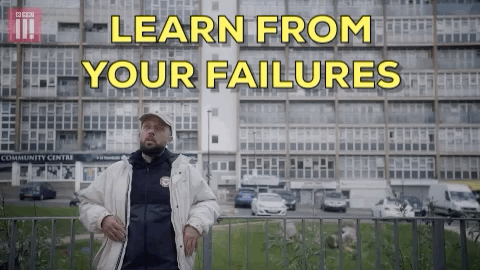Recently, I learned that one of my poems was being published. This was exciting enough on its own, but it was especially relieving after having been rejected by another magazine not much earlier. I had heard some tips about trying to get a work published that helped me in the process, but I also picked up a couple of things along the way. If you're interested in poetry or stories and you'd like to be published, I hope that these tips will be helpful and encouraging to you.
Here are five things I learned about getting a work published:
1. Don't give up.

One tip I'd heard that I really want to pass on is to not give up. You're going to get rejected no matter how good your works might be (or how good you think they might be). I could have given up after my first rejection, but that would have been silly, wouldn't it? You can't just try once and expect everything to go perfectly, let alone have every submission get published. You just have to take it in stride and not give up. If poetry or stories are what you love and you want to get published, then don't let one rejection stop you.
2. Know your audience.

Another tip I'd heard was that the rejection may not be because you sent in a bad poem but because you sent it to the wrong people. Some magazines have their own particular styles, so you'll just have to find magazines that fit with your style or try to write something that fits with theirs. Don't keep sending the same type of work over and over again and expect them to accept you one day. This tip needs to be balanced with the previous tip: don't give up, but know where you need to send your stuff.
3. Go with your gut.

Getting feedback is wonderful. It may be difficult to have people criticize your work, but you've got to do it if you want to grow. With that being said, you can't please everybody. As the poet/author, you have to go with your instinct (or with God's leading if He's given you a specific subject to write about). You can't change your works to be what everyone else wants them to be - if you do, you won't be happy with what you've written. Then, if you send it in and it gets published, you won't have a published work that really feels like your own. Again, do take feedback: feedback is good, but just be careful that you don't overdo it.
4. Learn from rejection.

This may be hard for some people to believe, but you might occasionally get rejected because your work isn't that good. I know - crazy, right? Sometimes this isn't the case, but sometimes it is. Remember what I said about taking feedback? Rejection is a form of feedback. Especially if they leave you comments (which they normally don't, I don't think), you need to take the rejection as an opportunity to improve. Don't be discouraged if your work isn't perfect - no one's is. Just do your best and keep learning and growing. If you really love the art, you may come to love the progress.
5. Start small, but dream big.

My ultimate goal as a writer is to one day have a book published. That is the end goal (not to say that I'll quit writing after that, but that goal is what I aspire towards for now). To get there, though, it's better to start small with lesser goals. One smaller, more immediate goal that I had was to get a poem published. This, for me, seemed like the next step to take towards my ultimate goal. I'm not saying that you can't go for the big goal immediately, but starting off with a smaller dream like getting a poem published will teach you patience and determination, which will come in handy when going for the big goal. Don't get me wrong, though - getting a poem published is a dream in and of itself, and I'm in no way undermining or undervaluing this. I'm just saying that I have room to keep going, and I'll appreciate the lessons that I learn from this accomplishment when I move on to greater ones.
Well, I hope that these tips were helpful. I know I appreciated this advice when I got it. I hope that you write lovely works that change the world, but let's just focus on taking that first big step.
Good luck and happy writing!



















